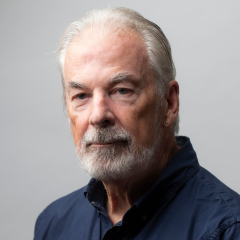One of the top five choirs in the world performed choral work from a University of Queensland music graduate in their Australian tour last month.
Joseph Twist was selected out of all Australian composers by producers of the event, Musica Viva, who commissioned his works for Trinity College Cambridge’s national tour.
Head of UQ’s School of Music Professor Margaret Barrett said the School is very proud of Joseph’s achievements and that being chosen was certainly well-deserved.
“Since his graduation with a PhD in composition, Joseph has garnered a number of prestigious awards,” Professor Barrett said.
“This commission from one of the world’s leading choirs is evidence of his international standing and it is wonderful to see him forging a career in music composition,” she said.
Joseph said it was his years at UQ’s School of Music that provided the rigorous and comprehensive scholarship that underpins all of his work.
“The many composing skills that I utilise – whether it be an opera, a film score, a commercial, a pop arrangement or choral work – are all thanks to the School’s emphasis on technique and tradition and their very strong history of choral music,” he said.
Joseph’s composition wrote specifically for Trinity is called Hymn of Ancient Lands and is a celebration of history, diversity, culture and landscape.
Funded by patrons Mary and Paul Pollard, Caedmon's Hymn was suggested as the text because it was discovered at the University of Cambridge.
“The text of the work is by Caedmon, who was one of the original ancient English poets to write in the earliest language of the Anglo Saxons, Old English,” Joseph said.
“I’m a big believer in paying homage to history through a modern lens – which is where composing new music is valuable – paying homage to something ancient but reflecting it somehow, through music, that might apply in a 21st century context,” he said.
Joseph uses Caedmon’s poem in Old English, Latin, and Modern English throughout the piece, as a way of connecting old with new, and sets each language to its own.
“The opening section is dominated by an etherial soprano solo, the second is punchy and rhythmic in nature, and the third section is homophonic, creating a kind of journey through both musical ideas and different versions of English,” he said.
Media: Professor Margaret Barrett, T: 3365 3514, M: 0407 091 911, E: m.barrett@uq.edu.au, Joseph Twist: E: twist.joeseph@gmail.com M: 0478 051 126, T: +1 (347) 261-7644



